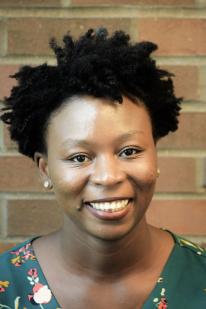The Graduate School is pleased to announce the winners of the 2019 Graduate and Professional Scholarly Excellence in Equity and Diversity (SEED) Awards
The SEED Awards honor graduate and professional students at the University of Minnesota whose research and scholarly interests are focused on issues of equity, diversity, and/or social justice, and who demonstrate outstanding creativity, innovation, and potential for scholarly and/or professional excellence in their discipline or field. Each of this year's SEED Award winners has shown an exceptional commitment to, engagement with and deep understanding of issues of equity, diversity, and social justice through their academic work and service to the community.
Read about this year's winners, along with their research interests:
Ummul Kathawalla
Counseling Psychology Ph.D., College of Liberal Arts
Discrimination and Muslim Americans
"In order to improve current research practices, I have been working on a systematic review of measures of Islamophobia and experiences of discrimination for Muslims. The current body of research has many methodological issues that make interpreting findings very challenging. My systematic review will assist researchers in choosing appropriate measures of Islamophobia and discrimination in their studies. Similarly, for my dissertation, I will be conducting a meta-analysis of the association between experiences of discrimination and life stressors and mental health for Muslim Americans. The meta-analysis will synthesize the current literature and help gain a better understanding of the effects of discrimination and life stressors on mental health for Muslims living in America. I am also going to examine the moderating effects of identity on the association."
Alexis Holt
EBD Licensure/M.Ed. Program , College Education and Human Development
Emotional Behavioral Disorders in Special Education
"My current program at the University of Minnesota focuses on students who display emotional behavioral disorders in special education. While learning about student characteristics with emotional behavioral disorders, and reasons students get referred to special education, I could not help but wonder why so many students of color are referred to special education if they make up such a lower number of the total student population in their schools. When given the chance in my classes, I focus my research on ways to better serve students of all backgrounds, and ways we can change the curriculum to fit our needs of the students we serve. I have designed lesson plans that incorporate students’ cultures, and allows them to teach other students about their lived experiences to make classrooms more inclusive for all students."
J'Mag Karbeah
Health Services Research, Policy and Administration, College School of Public Health
Life Course Implications of Policing in Early Adolescence
"Structural racism is a key driver of adverse health outcomes for African Americans in the U.S. Police violence is a form of structural racism with severe negative mental and physical health implications. To date, researchers have not explored the longitudinal impact of policing, however, nor the potential effects of gender. My dissertation research will address this hole in the literature by conducting an empirical evaluation of how police contact in early life impacts the health of adolescent African-American girls by analyzing the relationship between rates of police-involved disciplinary action and rates of truancy using data from the Department of Education."


